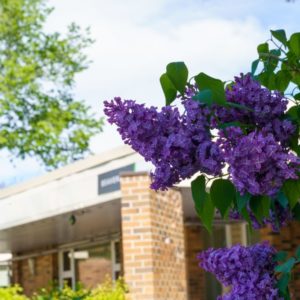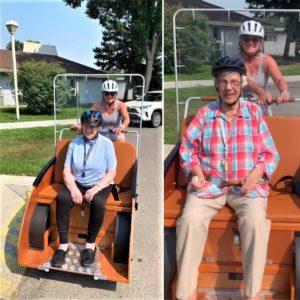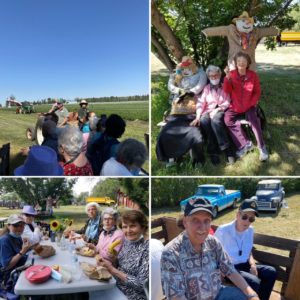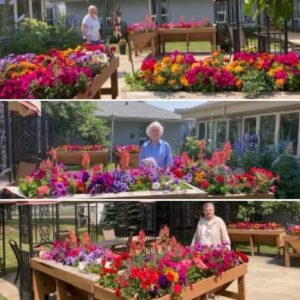Inside Silvera, issue 12
Preparation is key to successfully navigating emergencies
During a crisis, organizations are stretched and tested. Proper planning, well in advance, can help individuals and teams be ready to confidently jump into action and keep stakeholders safe. At Silvera, that primarily means two important groups: residents and employees.
Silvera has been tested a few times. Two recent large-scale examples in the past decade are the current pandemic and the Calgary floods in 2013. Both times, like many organizations, we needed to manage all the details correctly and share timely information. We had to keep our residents and employees safe and our communities operating seamlessly, amid ever-changing circumstances and many uncertainties. Examples that are smaller in scale – but can have immense impact – include a community in an influenza outbreak or something that needs a community evacuation.
“When an emergency strikes, having a well prepared and practised plan keeps employees calm and ready to appropriately react. Silvera’s ability to navigate crises effectively at Silvera isn’t due to luck, it’s the result of planning and regular training with employees across the organization.”
Jonathan Hamon, Health and Safety (H&S) Program lead
Silvera has an emergency response plan (ERP). It is overseen by Jonathan and the rest of the H&S team. The ERP is regularly analyzed, practised and updated. It involves people across the organization and at all levels.
The ERP helps ensure we move in alignment when responding to an emergency – including the incredibly important task of interacting with the organization’s many stakeholders. This way, when Silvera needs to declare a crisis, employees are trained and ready to activate the plan to start ensuring the safety of residents and employees.
The ERP follows a formal, internationally adopted crisis response structure, called the Incident Command System. This system is a hierarchy of procedures to managing incidents. It is also used by local emergency response teams such as police and fire departments, so we can “speak the same language” and respond quickly together, as needed.
All Silvera employees have worked hard during the pandemic alone, keeping residents, themselves and others healthy and safe. While the pandemic is ongoing and we are always focused on how Silvera can improve what it delivers to residents, we have learned a lot about our emergency response capabilities the past 18 months. Thank you to everyone for their dedication.
In the next issue of Inside Silvera, watch for an article on crisis communication planning and how it fits into the ERP.

New dementia research moves Silvera forward
Silvera recently partnered with the University of Calgary to uncover emerging promises, practices and tools that could help us improve dementia care at Silvera.
“We are a dementia-friendly organization, so it’s important that we keep current about research innovations in our sector that could help improve both residents’ quality of life and employees’ ability to provide excellent care,” says Barbara Hagen, Senior Manager, Impact and Innovation.
Read more here on the Stories/Blog section of silvera.ca.

Getting back to offering the events and programs residents enjoy
We’ve been welcoming back volunteers and service providers to our SL communities that we haven’t seen since spring 2020. The smiles are wide as we catch up and do interesting things together!
Volunteers and service providers support Silvera’s goal to expand the events and programs that help residents stay healthy in mind, body and spirit.
“It’s heartwarming to see residents being active and enjoying their days. It’s exciting to be able to offer these rich experiences. We’re working together toward our new normal – in fact, I think it’s going to be better-than-ever normal.”
Barbara Hagen, Senior Manager, Impact & Innovation
Barbara commends employees for identifying and implementing new approaches for resident support and health. Some things worked so well they’re now a part of our regular practices, such as using tablets for virtual visits and medical appointments, and Clorox Total 360 machines to disinfect common-touch surfaces.
More people are now entering communities, which increases potential exposure to illnesses. The top priority remains the health of residents, employees and visitors.
The boosted cleaning procedures stay in place, and in-community influenza vaccine clinics will happen in the coming months. We’ll also enhance screening procedures for volunteers, service providers and other visitors. We expect more details and updates to come from Alberta’s Chief Medical Officer of Health, Dr. Hinshaw.
“The processes and procedures inside Silvera communities are different than in the general public, because residents are more vulnerable to illnesses,” says Barbara. “It’s okay if you need clarity about what procedures needs to be followed at work.
“Please always feel comfortable talking to your supervisor or community management team.”
Keep monitoring and honouring your personal comfort level, and being patient with one another. Thank you for your vigilance and professionalism.

How to ask for help
Asking for comes naturally for some. For others, it’s anything but easy. If you get chronically exhausted and overwhelmed, though, you can’t deliver your best work – so asking for help’s vital.
Here are some tips for when you need to ask for help:
- Recognize when you need it: Know your limits and manage your energy wisely. How do you respond to stress? How do you know when you have reached your limit? The answers can help you understand when you need help.
- Be clear about what you need: When asking, explain exactly how the other person can help you. What specifically do you need help with?
- Ask the right person: Seek help from someone who has the specific skills needed for the task at hand. Otherwise, you might end up further behind.
- Be helpful in return: Extend help to others when you see them struggling. Remember to get permission first – jumping in to “fix” other people’s problems without their permission can backfire.
Getting comfortable with asking for help can take time, but it can make your life a whole lot easier. When it comes to asking for help, the earlier the better.

An unforgettable summer
What a summer it has been. There have been so many things to celebrate, one of the biggest being able to safely gather together again.
For residents, it started off with Stampede celebrations. Silvera employees coordinated delicious meals, toe-tapping music and opportunities to enjoy each other’s company in the sunshine. Residents have also had adventures in the city – such as a lovely morning at Bowness Park – and outside of it, including the Okotoks Erratic southwest of Calgary and Forget-me-not Pond near Bragg Creek.
It has also been great to begin safely welcoming back volunteers and performers into Silvera communities. Residents at several communities have enjoyed a few live music performances, with volunteer musicians and band Silence in B’tween. Some residents got outside on Trishaw bikes to enjoy some fresh air and a few local sights.
These have helped residents stay healthy in mind, body and spirit. It has been invigorating for residents to be able to gather and spend time together once again! Thanks to every employee who contributed to all of the festivities residents were offered throughout summertime.

Gardens have been a blooming success
It has been another successful summer gardening season at Silvera. Many communities have residents who tend the annual blooms. Volunteers help, and employees – particularly the Active Aging team – offer tremendous support. Gardening has therapeutic benefits for residents, and everyone can enjoy the resulting flowers and plants!
Thank you to everyone who helped residents plan, plant and maintain the annual blooms.
